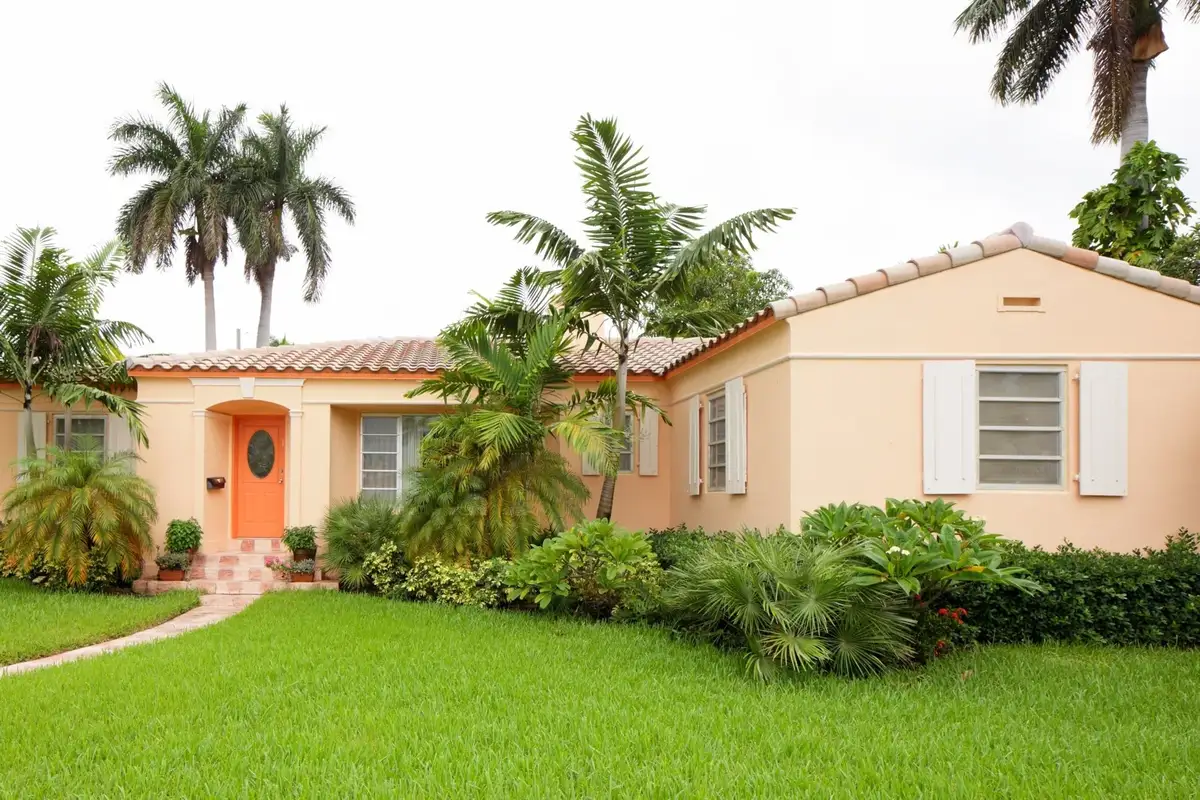Your home insurance premium is based on a number of variables that tell insurers about your risk. For example, location is a major factor in your rates – especially if you’re in a region prone to extreme weather.
Some regions, like California, may be more prone to wildfires, whereas coastal homes in Florida face hurricane risk. Even your neighborhood says something about your likelihood of experiencing a claim: Gated communities, for example, may be less prone to property theft than unsecured neighborhoods.
Here are some common factors that impact your home insurance costs.
Your home’s characteristics
Your home’s traits are a significant factor in how much your coverage costs – and the types of coverage you may need. For instance, your premium may be impacted by the home’s:
-
Age. Older homes that haven’t been renovated can carry higher risks due to its aging infrastructure, such as older building materials, roofing, piping, and wiring. This isn’t true all the time, though; if your home was built during a time with strict building standards, your home’s age could work in your favor. Think, “they just don’t make them like they used to.”
-
Amenities. Additional structures on your home, such as separate garages, sheds, and swimming pools, carry their own set of risk factors, which can raise overall home insurance costs.
-
Value. The higher your structure’s value (and thus, cost to replace), the higher the insurance costs are to cover it.
-
Construction. Your home’s construction and the materials used to build it impact its replacement cost. That ultimately affects your premium because you need enough insurance to cover the cost of replacing your home after a total loss.
-
Size. Your home’s square footage directly affects its replacement cost and your home insurance premiums.
All of these components can affect how well your home can weather a storm. That helps your insurance company determine what it might cost to cover your claims, which in turn impacts your premium.
Your location
As we mentioned earlier, where you live significantly impacts your homeowners insurance premium. Areas with a history of above-average crime rates often have higher premiums. Similarly, areas with greater exposure to natural disasters such as flooding and hurricanes may also see higher rates, because these types of risks increase the chances that you (and your neighbors) may need to file a claim.
Living in a densely populated area can also affect insurance premiums. Highly populated areas like cities tend to have higher construction costs. Since home insurance costs (specifically, Coverage A) correlate with replacement value, higher populated areas tend to have higher costs.
However, home insurance rates also correlate with area fire suppression capabilities. Densely populated areas tend to have more firefighters, fire hydrants, and equipment. Plus, homes located near permanently staffed fire stations tend to have lower rates. This is more likely in densely populated areas.
By contrast, homes within five miles of a staffed fire station or 1,000 feet of a fire hydrant tend to have lower premiums.
Your deductibles
Monthly premiums and deductibles have an inverse relationship: the higher you’re willing to pay by the month, the lower your deductible. Some homeowners may opt for the opposite, preferring a lower monthly premium for a higher deductible.
Though lower premiums will save homeowners money in the short-term, keep in mind that in the event of an accident, you end up paying more money upfront before the insurance company will step in. A good rule of thumb is to never choose a policy that has a deductible higher than you can pay on short notice.
Your risk management
Depending on where you live, your premium may change based on your home’s security. For example, Kin customers can get a discount for centrally monitored security alarms. Sprinkler systems and automatic water shut off systems may also qualify you for a reduced premium.
All of these items help to keep your property safe, reducing the likelihood of you having to file a claim, as well as the potential size of the claim, should you need to file one.
Your claims history
Premiums are influenced by the number of claims you have made in the past. Insurers often offer lower premiums to policyholders with a clean claims history.
Insurance providers will look at the home’s entire claims history, which includes claims filed by you and any previous owners. Home insurance costs may rise if more than one claim has been filed on a home over a 10-year period.
But the type of claim matters, too. Most states have laws that prevent insurers from holding catastrophic claims against you.
Your discounts
Homeowners often have the ability to lower their home insurance costs through discounts offered by their providers. For example, insurance companies may reduce your premiums when you:
-
Bundle policies. Some providers will give discounts if you purchase more than one type of insurance from them (e.g. auto and home insurance).
-
Avoid claims. Home insurance providers can give discounts to homeowners who don’t file claims. In some cases, the percentage may be so great (up to 20%) that it may be worth it to homeowners to pay for expenses out-of-pocket.
-
Stick with your carrier. Homeowners in good standing with their provider can be awarded discounts after staying with them for a number of years.
-
Make home improvements. Insurance companies may offer discounts for homeowners who make renovations or update older infrastructure such as piping and wiring.
-
Payment automatically. Setting up automatic payments or paying in-full can result in small discounts.
Some providers even reward non-smokers and retirees with discounts for posing lower risks than others. Retirees, for instance, are home more and more likely to spot a problem before getting too serious.
When shopping for a new insurance provider, remember to ask about eligible discounts and their amounts.
Your background
Folks with a good insurance score tend to have lower premiums, as can older applicants. (Wisdom isn’t the only thing that comes with age!) In some cases, seniors may even qualify for discounts. Likewise, new homeowners may get a break on their mortgage cost, so they may qualify for discounted insurance rates.
The factors that determine insurance scores are similar to those that impact credit scores, such as credit history, on-time payments, outstanding debt, and number of credit accounts. A positive insurance score can help lower your monthly home insurance premiums.
Your landlord status
If you rent out your property, you may need additional coverage to address the risks you take on as a landlord. As you might’ve guessed, more coverage almost always means higher premiums.
Depending on the type of property you’re renting and how often you’re renting it out, you may need an entirely separate landlord insurance policy. However, Kin customers in some states can get House & Property insurance that can be customized to their particular needs.
Check out our landlord insurance guides for:
Your personal belongings
If you have a lot of valuable property – heirloom jewelry, antiques, artwork, etc. – you may need additional personal property coverage to adequately protect your belongings. Some insurers may offer an endorsement to
. This costs extra, but it does ensure you are appropriately compensated if they are lost or stolen.


